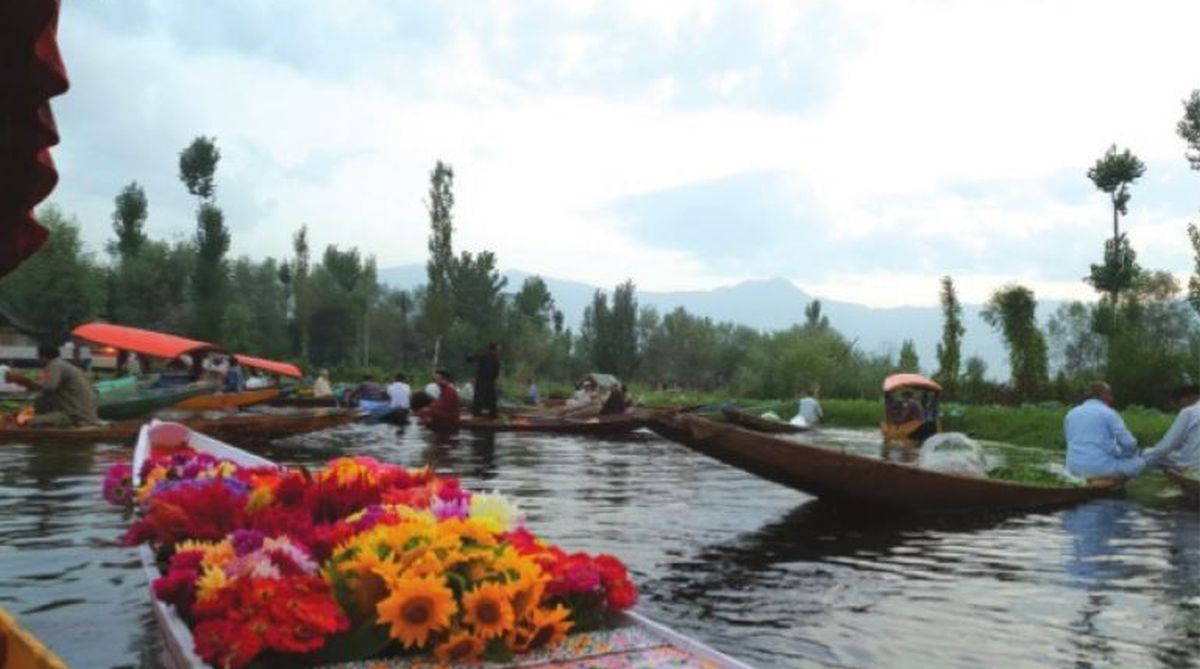Abhay Deol on ‘Road, Movie’ re-release: “Unfamiliar and exciting!”
'Road, Movie' (2009), directed by Dev Benegal, follows a young man’s transformative journey across India's landscapes.
While the beauty of the Dal Lake in Srinagar attracts visitors, an early morning visit to the floating market is an experience apart, writes Suchayan Mandal.

The hotel intercom started buzzing like crazy. The pitch of the tone too high to ignore the call, I pick up the phone with utter annoyance. The voice on the other side was baritone mixed with candy. It’s the front desk manager, Aman. “Good Morning. Your car is waiting at the porch,” was all he had to say.
I quickly woke up and remembered, I was at Srinagar, one of the prettiest valleys in the country. I can’t blame Aman for ruining my sleep as it was I who had agreed to the trip. The night before, while gorging on chef-recommended Kashmiri Biryani at Takht-e-Suliaman, Aman came up with the idea of me visiting the early morning market on the Dal Lake. The stay at RK Sarovar Portico Srinagar has been made memorable by this gentleman who, sensing my knack for exploration, suggested some unconventional places to visit.
Advertisement
While most people visit Dal Lake during the day or evening, the local market on water triggered my curiosity. I arrived at Jetty No 13, bang opposite a small mosque. With the morning Azaan as backdrop, I was struck by the beauty of the lake in the dark with an orange sky in the east. Everything here looks black, even the mountains around, except for the eastern sky getting ready for a new day.
Advertisement
There was a boatman rowing a shikara in the middle of the lake, whom I called out to. He quoted Rs 600 for an hour-long shikara ride. I agreed. Ten minutes into the ride, the only thing audible was the splashing sound the oars made. I expected Altaf, the boatman, to break into a folk song, but he seemed too reserved to be asked. We soon left behind the wide lake and entered a narrow canal with shops lined on both sides.
These shops are situated on the houseboats that are stationed in hundreds across the lake. While many houseboats serve as homestays, the majority are residences for local people, who can’t afford land. If you ask about the hygiene of these houseboats, that’s a subject not to be spoken about much. The black water and plastic waste all around are proof enough. When I was pondering over this serious environmental issue, a humming noise could be heard. The boatman said in a low voice, “That’s the market!”
I have never seen a market on water before. With Dal Lake as a setting, I was awaiting a surprise and I was not disappointed. Never did I imagine, a full-fledged market can be just on boats, where both customers and sellers are rowing. And just like any market, there are rows for each items. It started with flowers ~ lilies, lotus, roses, chrysanthemum were among a wide variety of flowers being sold. While the first set of sellers were men, as we moved forward, the majority flower sellers were women. With their dupatta tied over their heads like turban, these women were selling the flowers to people, who had come from the city centre.
Hesitant to speak to tourists, one of the women pushed her mother, who informed that this was the only place where they sell, except for some petty sales to tourists. They earn Rs 200-600 a day depending on the market. And then began the fruits and vegetables market. Priced at par with the land markets, these are meant for consumption of the houseboats. There are also vendors from land, who buy these vegetables in bulk.
A few vegetables like gourd, cucumber and pumpkin are grown by the people living on water. The tiny pieces of land that pop up across the lake are used to grow them. There are almost 50 vegetable sellers vending potato, onion, eggplant, okra, even fish and eggs. The fish are mostly from the lake and the stream nearby.
The market was at its peak at 6 a.m. With first rays of sun making the bitter gourd shine, the sellers became too busy to chat. They must wrap up the market in halfan- hour to facilitate the tourists. Dal Lake may have its touristy pleasure with the surrounding mountains reflecting on its dark waters, bringing memories of Bollywood of the 1980s. But this market is for the travellers, who love sharing proximity with local culture.
I returned to the hotel room enlightened. I entered the room to find my breakfast waiting by the bed, as asked for. Gorging on a palate of roasted meat and dry fruit laden pan cakes, I was comforted by how peaceful this part of the country is. But the phone rings: Aman has dialled-in with another set of itinerary to explore the local culture.
Advertisement